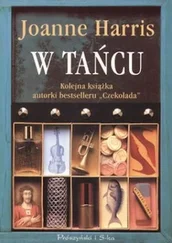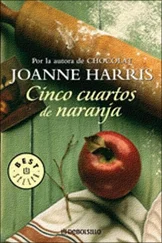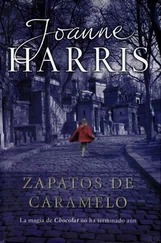Le Pinot, Jay understood, had been so successful that the production of its local vintage, after which the village was named, had ceased altogether.
‘Your neighbour is one of those people.’ Caro’s mouth thinned beneath the pink lipstick. ‘Works half the land between here and Les Marauds, and still barely makes enough from winemaking to keep body and soul together. Lives holed up all year round in that old house of hers, with never a word to anyone. And that poor child holed up with her…’
Toinette and Jessica nodded, and Clairmont poured more coffee.
‘Child?’ Nothing in Jay’s brief glimpse of Marise d’Api had led him to imagine her as a mother.
‘Yes, a girl. No-one ever sees her. She doesn’t go to school. We never see them in church. We tried to suggest that they might,’ Caro made a face, ‘but the torrent of abuse from the mother was quite disgusting.’
The other women made sounds of agreement. Jessica moved a little closer, and Jay could smell perfume – he thought it was Poison – from her bobbed blond hair.
‘She’d be better off with the grandmother,’ said Toinette emphatically. ‘At least she’d get the affection she needs. Mireille was absolutely devoted to Tony.’ Tony, explained Caro, was Marise’s husband.
‘But she’d never let her have the child,’ said Jessica. ‘I think she only keeps her because she knows it galls Mireille. And, of course, we’re too far out for anyone to take much notice of what an old woman says.’
‘It was supposed to have been an accident,’ continued Caro darkly. ‘I mean, they had to say that, didn’t they? Even Mireille played along, because of the funeral. Said his gun exploded when a cartridge got stuck in the chamber. But everyone knows that woman drove him to it. Did everything but pull the trigger. I’d believe anything of her. Anything at all.’
The conversation was beginning to make Jay feel uncomfortable. His headache had returned. This was not what he’d expected of Lansquenet, he told himself, this genteel spite, this gleeful hint of cruelty behind the prettiness. He hadn’t come to Lansquenet to hear about this. His book – if there was ever going to be a book – didn’t need this. The ease with which he’d written the twenty pages on the reverse of Stout Cortez proved it. He wanted apple-faced women picking herbs in their gardens. He wanted a French idyll, a Cider With Rosette , a lighthearted antidote to Joe.
And yet there was something curiously pervasive about the story itself, about the three women’s faces drawn close in identical expressions of vulpine enjoyment, eyes squinched down, mouths lipsticked wide over white, well-tended teeth. It was an old story – not even an original story – and yet it drew him. The feeling – that sense of being yanked forwards by an invisible hand in his gut – was not entirely unpleasant.
‘Go on,’ he said.
‘She was always at him.’ Jessica took over the narrative. ‘Even when they were first married. He was such an easy-going, sweet man. A big man, but I’ll swear he was frightened of her. He let her get away with anything. And when the baby was born she just got worse. Never a smile. Never made friends with anyone. And the rows with Mireille! I’m sure you could hear them right across the village.’
‘That’s what drove him to it in the end: the rows.’
‘Poor Tony.’
‘She found him in the barn – what was left of him. His head half blown away by the shot. She put the baby in the crib and rode off to the village on her moped, cool as you like, to fetch help. And at the funeral, when everyone was mourning’ – Caro shook her head – ‘cold as ice. Not a word or a tear. Wouldn’t pay for anything more than the plainest, cheapest funeral. And when Mireille offered to pay for something better – Lord! The fight that caused!’
Mireille, Jay understood, was Marise’s mother-in-law. Almost six years later, Mireille, who was seventy-one and suffered from chronic arthritis, had never spoken to her granddaughter, or even seen her except from a distance.
Marise reverted to her maiden name after her husband’s death. She apparently hated everyone in the village so much that she employed only itinerant labour – and that on the condition that they ate and slept at the farm for the duration of their employment. Inevitably, there were rumours.
‘I don’t suppose you’ll see much of her, anyway,’ finished Toinette. ‘She doesn’t talk to anyone. She even rides over to La Percherie to buy her weekly shopping. I imagine she’ll leave you well alone.’
Jay walked home, despite offers from Jessica and Caro to drive him back. It was almost two, and the night was fresh and quiet. His head felt peculiarly light, and although there was no moon there was a skyful of stars. As he skirted the main square and moved downhill towards Les Marauds he became aware, with some surprise, of how dark it really was. The last street lamp stood in front of the Café des Marauds, and at the bottom of the hill, the river, the marshes, the little derelict houses teetering haphazardly into the water dipped into shadow so deep that it was almost blindness. But by the time he reached the river his eyes had adapted to the night. He crossed in the shallows, listening to the hisssh of the water against the banks. He found the path across the fields and followed it to the road, where a long avenue of trees stood black against the purple sky. He could hear sounds all around him: night creatures, a distant owl, mostly the sounds of wind and foliage, from which vision distracts us.
The cool air had cleared his head of smoke and alcohol and he felt alert and awake, able to walk all night. As he walked, he found himself going over the last part of the evening’s conversation with increasing persistence. There was something about that story, ugly as it was, which attracted him. It was primitive. Visceral. The woman living alone with her secrets; the man dead in the barn; the dark triangle of mother, grandmother, daughter… And all around this sweet, harsh land, these vines, orchards, rivers, these whitewashed houses, widows in black headscarves, men in overalls and drooping, nicotine-stained moustaches.
The smell of thyme was pungent in the air. It grew wild by the roadside. Thyme improves the memory, Joe used to say. He used to make a syrup out of it, keeping it in a bottle in the pantry. Two tablespoonsful every morning before breakfast. The clear greenish liquid smelt exactly like the night air over Lansquenet, crisp and earthy and nostalgic, like a summer day’s weeding in the herb garden, with the radio on.
Suddenly Jay wanted to be home. His fingers itched. He wanted to feel the typewriter keys under them, to hear the clack-clacking of the old machine in the starry silence. More than anything he wanted to catch that story.
HE FOUND JOE WAITING FOR HIM, STRETCHED OUT ON THE CAMP bed, hands laced behind his head. He had left his boots by the foot of the bed, but he was wearing his old pit-helmet, cocked at a jaunty angle on his head. A yellow sticker on the front read, ‘People will always need coal.’
Jay felt no surprise at seeing him. His anger had gone, and instead he felt a kind of comfort, almost as if he was expecting to see him – the ghostly apparition becoming familiar as he began to anticipate it, becoming…
Everyday magic .
He sat down at the typewriter. The story had him in its hold now and he typed rapidly, his fingers jabbing at the keys. He typed solidly for more than two hours, feeding sheet after sheet of Stout Cortez into the machine, translating it, reversing it with his own layman’s alchemy. Words pranced across the page almost too fast for him to keep pace. From time to time he paused, vaguely conscious of Joe’s presence on the bed beside him, though the old man said nothing while he worked. At one point he smelt smoke. Joe had lit a cigarette. At about five in the morning he made coffee in the kitchen, and when he returned to his typewriter he noticed, with a curious feeling of disappointment, that the old man had gone.
Читать дальше












